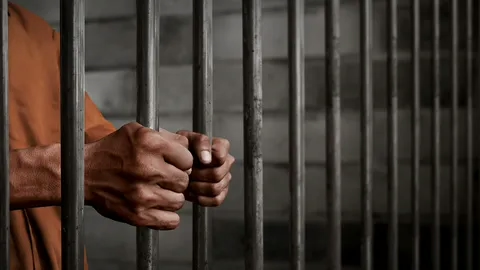Legal Alternatives When a Victim Refuses Mediation in Criminal Cases in Thailand

Introduction: What Happens When a Victim Refuses to Settle?
In criminal law, especially in Thailand, victim participation in mediation can significantly affect the course and outcome of a case. However, what happens when a victim refuses mediation in criminal proceedings? Does this automatically mean the accused will face imprisonment? The short answer is no. Under Thai criminal procedure, several legal alternatives are available to defendants—even in the absence of a successful mediation.
This article outlines key procedural and strategic options that can be pursued when a victim refuses mediation in criminal cases, emphasizing the legal mechanisms, judicial discretion, and practical defenses that can help reduce or defer sentencing. Legal professionals and clients alike should understand these options in order to pursue the most favorable outcome under the law. For clients navigating complex criminal matters, consulting a lead law firm in Bangkok is strongly recommended.
Mediation Refused—Does It Mean Imprisonment?
Understanding the Misconception
The absence of a mediated agreement does not automatically result in incarceration. Thai courts consider numerous factors during sentencing, including genuine remorse, willingness to compensate, and clean criminal history. The legal system allows judges substantial discretion, especially when the defendant takes proactive steps to demonstrate accountability.
For more detail on sentencing discretion in Thai courts, refer to this academic paper on restorative justice in Thai criminal law.
Legal Strategies When Mediation Fails
1. Pleading Guilty Sincerely
A sincere and unqualified guilty plea remains one of the most effective means to mitigate penalties:
-
Courts may reduce penalties or even grant suspended sentences when defendants plead guilty.
-
Representation by legal counsel is essential to frame the plea appropriately, ensuring legal arguments and mitigating factors are clearly presented.
2. Requesting the Court’s Assistance in Facilitating Mediation
Although mediation at the police or prosecutorial level may have failed, courts can still encourage resolution:
-
Judges may intervene during pre-trial proceedings to facilitate settlement discussions.
-
In defamation cases, for example, courts often help parties reach compromise by adjusting the claimed damages.
3. Demonstrating Good Faith Without Settlement
Even without victim cooperation, defendants can demonstrate good faith (bona fide) through alternative actions:
-
Submitting a written statement of mitigation explaining motives (e.g., financial hardship, family pressures).
-
Requesting a criminal background investigation from the Probation Office to confirm no prior offenses.
-
Depositing compensation funds with the court even if the victim refuses to accept it—courts may still consider this as evidence of contrition.
4. Addressing Civil Damages Claims Separately
If the victim pursues civil compensation claims alongside or after the criminal case:
-
Thai courts will evaluate such claims independently of the victim’s refusal to mediate.
-
In many defamation cases, courts typically award damages ranging from tens of thousands to a few hundred thousand baht.
-
Proactive compensation (e.g., offering funds upfront) may result in reduced criminal penalties or deferred sentencing.
To understand civil vs. criminal remedies in Thai law, this Thailand Law Library reference provides foundational legal sources.
5. Appealing a Harsh Judgment from the First Instance Court
If the court of first instance imposes a custodial sentence despite the defendant’s efforts:
-
The defendant retains the right to appeal to the Court of Appeal.
-
Grounds for appeal may include excessive sentencing, failure to consider mitigating factors, or procedural fairness.
Practical Tips for Legal Teams and Defendants
Legal Documentation
-
Ensure that all supporting documents, including written apologies, medical records, family affidavits, and employment records, are properly submitted.
-
Include certified records from the Probation Office if criminal background checks are requested.
Strategic Timing
-
Submit all mitigation requests and compensation offers prior to sentencing.
-
Engage legal counsel early, particularly during the investigation or police inquiry phase.
Witnesses and Character References
-
Consider submitting affidavits or letters of support from employers, community leaders, or religious figures.
-
These can provide persuasive evidence of the defendant’s positive character and social contribution.
Summary: There Are Still Legal Options
Victims may sometimes refuse to negotiate due to anger, trauma, or personal principles. Nonetheless, when a victim refuses mediation in criminal proceedings, it does not eliminate legal defenses or sentencing flexibility. A well-prepared legal team can present sufficient evidence of remorse, make restitution offers, and argue for reduced or deferred punishment.
Understanding these procedural rights and preparing strategically can make the difference between imprisonment and probation. Defendants facing such challenges should consult with a reputable criminal defense attorney or lead law firm in Bangkok experienced in Thai criminal litigation.
For more information on Thai legal procedures in criminal law, see this overview from the Department of Rights and Liberties Protection.
Contact Information
Siam Center Law Group
Website: https://www.siamcenterlawgroup.com
Phone: Available for consultation 5 working days a week
For support with preparing pleadings, submitting court documents, or exploring expedited dispute resolution, our attorneys are ready to assist you with professionalism and clarity.
